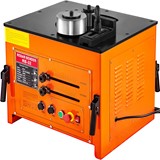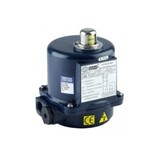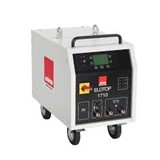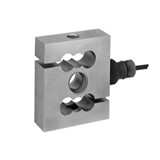Led by Associate Professor Fay Rola-Rubzen for the Desert Knowledge CRC, the study of Australian small-to-medium enterprises (SMEs) will survey both Aboriginal and non-Aboriginal business owners across Australia to identify the keys and barriers to success in running a business.
"It will be a great opportunity for businesses located in the desert to have their say," she says. "The information it yields will be vital in building the economic independence of Aboriginal communities and individuals – a factor which is in turn central to the health, wellbeing and self-sufficiency of both. The findings of the study can provide valuable information to assist the Federal Government's 'Closing the Gap' national goal."
The team has invited owners of all kinds of desert enterprises who would like to take part to get in touch with them.
"Developing economic independence is normally achieved in two ways – through having paid employment or through running a business enterprise. While there has been progress in Aboriginal employment, the number of unemployed remains high, especially in remote areas of the continent," Prof. Rola-Rubzen says.
The 2006 ABS census showed that only about 46 per cent of Indigenous people aged 15 years and over were employed, compared to 62 per cent of non-Indigenous people. In addition, many of these only have part-time jobs (39%).
"A very good way Aboriginal people can achieve economic independence is through setting up and running their own businesses. However, starting and running a business is not easy. The Indigenous Business Review (2003) noted that self-employment among Indigenous Australians is lower than for non-Indigenous Australians, and also lower than for Indigenous New Zealanders. This applies particularly in desert Australia where more than 100,000 Indigenous people live."
Yet small businesses play a key role in Australia's desert economy and create many jobs, she adds. There are very extensive opportunities for new businesses based on Aboriginal cultural activities, bush foods, tourism and servicing the mining and pastoral industries.
"The unique environment of desert Australia offers many opportunities for SMEs. The very lack of services represents opportunities for people living in the desert to develop business enterprises around the service industry. The recent move of the government to improve housing in the desert likewise offers not only employment but also business opportunities for entrepreneurial people. But the strongest competitive advantages of desert regions are based on their natural and cultural resources.
"We want to know what makes successful Aboriginal and non-Aboriginal businesses tick, in a region of Australia where the obstacles to business success are greater than in the cities or coastal regions.
"In the desert you are further from your suppliers and your customers, your labour supply may be uncertain, you face disadvantages in access to finance, insurance, business advice, computer technology, training and other essentials. It's a tall order to run a successful business in the deserts.
"Yet we also know that, per capita, there are more small businesses in desert Australia than in the whole of Australia. In fact there are about 41,000 SMEs – and many of them flourish amid challenging conditions. However, only about one per cent are owned and run by Aboriginal people."
Despite this there are a number of highly successful Aboriginal businesses which can act as models for others to emulate, she adds.
Over the coming month, Prof. Rola-Rubzen and her team will conduct surveys of SMEs across Australia. It is important that businesses in desert regions participate in this nationwide survey, as the region covers three-quarters of the continent, she says.
"Our main goal is to identify the reasons for business success and failure, the opportunities and the obstacles, and how these apply to Aboriginal enterprises in particular. We are looking to interview the owners and operators of all kinds of small and medium enterprises."
The sort of issues being explored are:
- What are the key ingredients for small business success?
- What influences their performance?
- How do businesses in the desert compare to those businesses in the coast?
- How do non-Indigenous owned businesses perform compared to Indigenous-owned businesses?
- What is needed to increase the performance of Indigenous-owned businesses?
- What business frameworks or models are likely to increase their success?
- What opportunities can be explored to link businesses in the desert and those at the coast to improve supply chains and better respond to modern economic realities?
The research will benchmark the performance of Indigenous-owned and non-Indigenous-owned businesses, determine what are the types of businesses, current business delivery models, factors that influence the performance of businesses and the extent of business start-up and other opportunities in desert Australia. It will identify critical success factors and business models that are more appropriate and culturally sensitive to Indigenous entrepreneurs and suited to desert Australia.
The findings of the research will provide an important foundational input to DKCRC's successor, the CRC for Remote Economic Participation (CRC-REP), which is due to start on July 1 this year.
The findings will benefit both Aboriginal and non-Aboriginal small enterprises, she says.
The survey team wants to interview owners of all kinds of SMEs, and has invited those who wish to participate to contact them at: [email protected] or phone 08 9266 2122.
"We are offering respondents a chance to win a prize – a laptop and printer package worth around $2000," she says.











